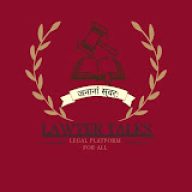BNSS Chapter wise Question set 1
Objective Questions of BNSS and theirs Answers which are provided below: –
1. Under the BNSS which of the following courts are shown as criminal courts?
(a) The High Court
(b) Court of Session
(c) Judicial Magistrate
(d) All of these
2. Which of the following courts present in Cr.P.C. has been removed in BNSS?
(a) Metropolitan Magistrate
(b) Judicial Magistrate First Class
(c) Judicial Magistrate Second Class
(d) Special Judicial Magistrate
3. Which section of BNSS deal with territorial divisions?
(a) Section 7
(b) Section 8
(c) Section 9
(d) Section 10
4. Under BNSS- Who can alter the limits of territorial divisions and districts?
(a) Only State Government
(b) State Government after consultation with High Court
(c) Only High Court
(d) Central Government
5. Which section of BNSS deals with the Court of Session?
(a) Section 9
(b) Section 8
(c) Section 12
(d) Section 11
6. Under BNSS – Who has the authority to establish the Court of Session in a district?
(a) Governor
(b) High Court
(c) State Government
(d) All of the these
7. Under BNSS- Which of the following statements is true?
(a) State Government shall establish a Court of Session with the consultation of High Court
(b) State Government shall establish a Court of Session
(c) The High Court shall establish a Court of Session
(d) The Supreme Court shall establish a Court of Session
8. Which of the following are not ‘classes of criminal courts’ as defined under the BNSS?
(a) High Court, Executive Magistrate, Magistrate Second Class
(b) High Court, Court of Sessions, Executive Magistrate
(c) Magistrate first class, Magistrate Second Class, Executive Magistrate
(d) Revenue Court, Metropolitan Court
Answer
- D
- A
- A
- B
- B
- C
- B
- D
- Dying declarationby Aayush Anand & LT Team
- Bihar APO Exam Date 2026: Prelims Scheduled for July 15 – Check Official Notificationby Aayush Anand & LT Team
- UP APO Exam Date 2026 Announced: Check UPPSC Official Calendar & Scheduleby Aayush Anand & LT Team
- Indian Army JAG 124 Notification 2026: Vacancies, Eligibility, and Apply Onlineby Aayush Anand & LT Team
- Official IBPS 2026-27 Calendar Out: Check SO Law & RRB Scale II Datesby Aayush Anand & LT Team

2 thoughts on “BNSS MCQ [free]| OBJECTIVE QUESTIONS & ANSWER of BNSS”
Pingback: MCQs of Transfer of Property Act 1882 with Answer[free] – Lawyer Talks – Lawyer Talks
Pingback: 70+ Practice Questions on Hindu Adoption and Maintenance Act, 1956[Free]| Hindu Law MCQ|| Judiciary MCQ||Lawyer Talks – Lawyer Talks